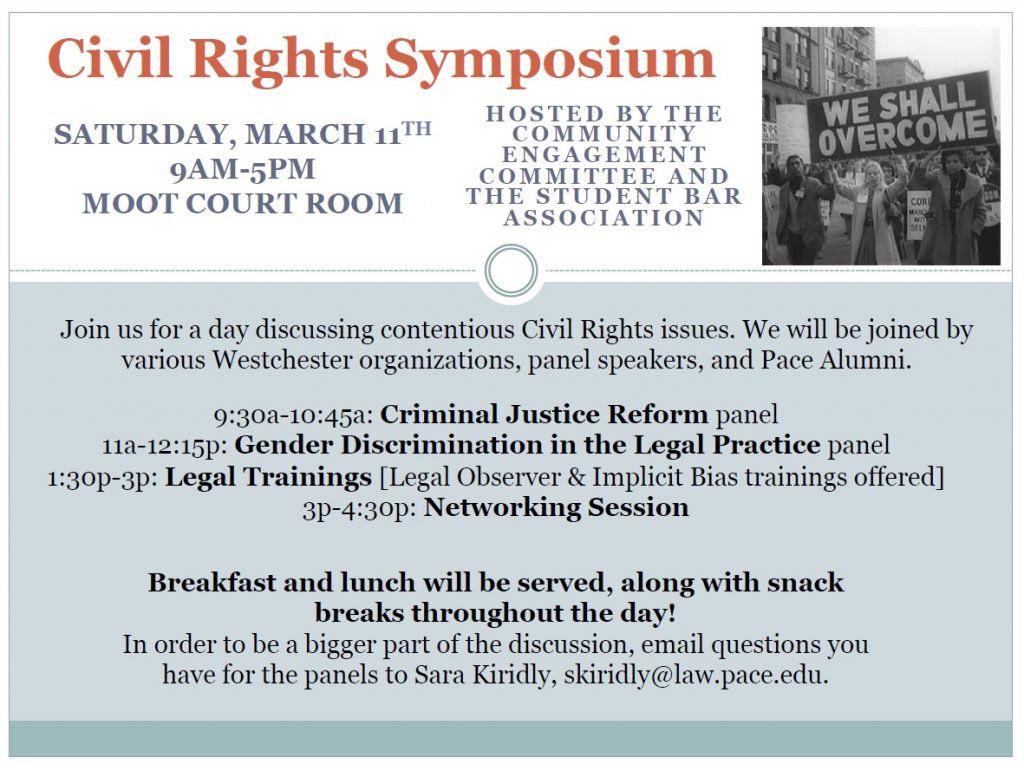Event: Civil Rights Symposium
Please join the Community Engagement Committee and the SBA at Elisabeth Haub School of Law, Pace University, for a full day Civil Rights Symposium on Saturday, March 11, 2017 at 9:00 AM – 5:00 PM in the Moot Court Room.
Criminal Justice Reform Panel
- Kenneth Chamberlain Jr. – Leader of the Westchester Coalition for Police Reform, and outspoken advocate for police reform within the greater Westchester region.
- Eugene O’Donnell, J.D. – Professor and former NYPD officer. Previously served in the Queens and Brooklyn DA’s offices. Nationally recognized expert on policing issues, including use of force.
- Chief Edward L. Stephens – Chief of Police for the Wolcott Police Department
Gender Discrimination in the Legal Practice Panel
- Professor Linda Fentiman, J.D. – Her most recent work has focused on women and addiction. In 2010 she was a Visiting Scholar at the Center for Reproductive Rights in New York.
- Anne Golden, J.D. – Co-founder of Outten & Golden LLP, and co-chaired the firm’s discrimination and retaliation practice group.
- Steven Felsenfeld, J.D. –Over 20 years of labor and employment law practice experience, advising and litigating multiple sexual harassment matters. He has created and conducted sexual harassment training, and created multiple employee handbooks. Certified senior professional in Human Resources.
Legal Observer Training
- Held by the National Lawyers Guild – Susan Howard – Executive Director of the NLG-NYC Chapter
Implicit Bias Training
- Held by Cornell L. Craig – Director of Multicultural Affairs and Diversity Programs at Pace University
Westchester Orgnizations attending
- WESPAC
- Westchester Martin Luther King, Jr. Institute for Nonviolence
- Westchester Coalition for Police Reform

